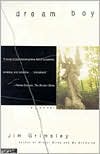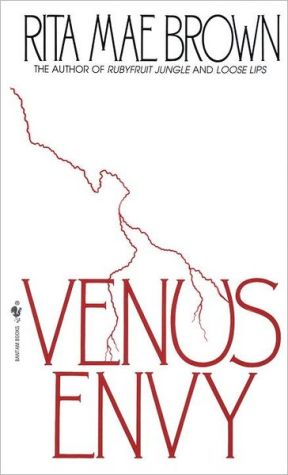Cinnamon Gardens
In a novel of family honor and destiny that recalls the masterful storytelling of "Raj Quartet, " this tale follows an upper-class teacher facing an arranged marriage, and the uncle who must suppress the secret desires that threaten to throw his life into chaos.
Search in google:
A compulsively readable historical novel set in 1920s Ceylon-about prejudice and love, both straight and gay.Set among the upper classes in the gracious, repressive, and complex world of 1920s Ceylon (Sri Lanka), this evocative novel tells the story of two people who must determine if it is possible to pursue personal happiness without compromising the happiness of others. A young teacher, Annalukshmi, whose splintered family attempts to arrange an appropriate marriage for her, must decide whether the independence she craves will doom her to a life without love and companionship. It is also the story of Balendran who, respectably married, must suppress-or confront-the secret desires for men that threaten to throw his life into chaos.With sensuous atmosphere and vivid prose, this masterfully plotted novel re-creates a world where a beautiful veneer of fragrant gardens and manners hides social, personal, and political issues still relevant today.About the Author:Shyam Selvadurai was born in 1965 in Colombo, Sri Lanka. A graduate of York University in Canada, his first novel, Funny Boy, was awarded the Lambda Literary Award in addition to being named a Notable Book by the American Library Association. He has been published in seven countries. Selvadurai lives in Toronto, Canada.Salon - Akash KapurMuch like the upper-class Colombo world it portrays, Cinnamon Gardens is a polished and elegant work. Five years ago Shyam Selvadurai, a Sri Lankan-born writer who has spent the better part of the past two decades in Canada, published his well-received first novel, Funny Boy, a touching story about a young man coming to terms with his homosexuality. Now he takes up the theme of high-society morality and hypocrisy in a second book that reads like a turn-of-the-century Sri Lankan novel of manners. The trouble is that -- again, like the world it portrays -- Cinnamon Gardens is a little too polished. It lacks the idiosyncrasies and the unpredictability that would give it life. In aspiring to write a grand social epic, Selvadurai has put all the cultural and historical scaffolding a little too neatly in place. Historical incidents obviously gleaned from archival research feel artificially woven in; quotations from the Triukkural, an ancient work of Tamil philosophy, are copiously (and indiscriminately) cited, not only by several characters but also by the author, at the head of each chapter. There is more than a little exoticization in the use of such elements, and like all exoticization, this case tends to emphasize the general at the expense of the particular. Selvadurai is so eager to tell the big social story that he neglects the human elements. Thus he grafts his characters' lives and relationships onto the age's great concerns; the results read like stereotypes. The Mudaliyar Navaratnam, the patriarch of the family at the center of the book, fights against universal suffrage and stifles his son Balendran's passion; he represents the old generation. Annalukshmi, the headstrong young teacher who rides a bicycle and refuses to marry, is the voice of women's emancipation. Mr. Jayaweera, the teacher from a rural village who fights for the rights of laborers, points up the economic exploitation of the colonial era. His conversations with the urbane and well-educated Annalukshmi -- he intrigues her with his talk of spirit possessions and snakebites in the country's interior -- sound like parodies of interclass interaction. These characters and many more populate a sprawling narrative. They find love and friendship, and they struggle through conflicts with family members, social mores and their own repressed desires. Selvadurai holds his complicated story line together adeptly, but he is less successful at fleshing it out, at giving it emotional and psychological depth. When Balendran meets his long-lost lover, Richard, after 20 years (they had been forced apart when Balendran's father discovered the true nature of their relationship), the reunion is, all too characteristically, linguistically stilted and psychologically shallow. Balendran is "speechless" and "stung by [Richard's] words"; later, he feels "a terrible emptiness." "The sure apprehension of another mind / Is the mark of a God," runs another verse from the Triukkural (one that Selvadurai doesn't cite). It's the mark of a good novelist, too. Curiously, as the veneer of respectability and propriety begins to wrinkle near the end of the book, Selvadurai's starched tone acquires a little life. Sentiments become less lachrymose, memories more vivid, and the conclusion, in contrast to the rest of the plot, is a surprise. There are traces in the final pages of the sensitivity and insight that distinguished Funny Boy. The effect is uplifting, but also a little disappointing. Selvadurai obviously has tremendous potential; we'll have to wait at least until his next book to see it fulfilled.
\ Akash KapurMuch like the upper-class Colombo world it portrays, Cinnamon Gardens is a polished and elegant work. Five years ago Shyam Selvadurai, a Sri Lankan-born writer who has spent the better part of the past two decades in Canada, published his well-received first novel, Funny Boy, a touching story about a young man coming to terms with his homosexuality. Now he takes up the theme of high-society morality and hypocrisy in a second book that reads like a turn-of-the-century Sri Lankan novel of manners.\ The trouble is that -- again, like the world it portrays -- Cinnamon Gardens is a little too polished. It lacks the idiosyncrasies and the unpredictability that would give it life. In aspiring to write a grand social epic, Selvadurai has put all the cultural and historical scaffolding a little too neatly in place. Historical incidents obviously gleaned from archival research feel artificially woven in; quotations from the Triukkural, an ancient work of Tamil philosophy, are copiously (and indiscriminately) cited, not only by several characters but also by the author, at the head of each chapter.\ There is more than a little exoticization in the use of such elements, and like all exoticization, this case tends to emphasize the general at the expense of the particular. Selvadurai is so eager to tell the big social story that he neglects the human elements. Thus he grafts his characters' lives and relationships onto the age's great concerns; the results read like stereotypes. The Mudaliyar Navaratnam, the patriarch of the family at the center of the book, fights against universal suffrage and stifles his son Balendran's passion; he represents the old generation. Annalukshmi, the headstrong young teacher who rides a bicycle and refuses to marry, is the voice of women's emancipation. Mr. Jayaweera, the teacher from a rural village who fights for the rights of laborers, points up the economic exploitation of the colonial era. His conversations with the urbane and well-educated Annalukshmi -- he intrigues her with his talk of spirit possessions and snakebites in the country's interior -- sound like parodies of interclass interaction.\ These characters and many more populate a sprawling narrative. They find love and friendship, and they struggle through conflicts with family members, social mores and their own repressed desires. Selvadurai holds his complicated story line together adeptly, but he is less successful at fleshing it out, at giving it emotional and psychological depth. When Balendran meets his long-lost lover, Richard, after 20 years (they had been forced apart when Balendran's father discovered the true nature of their relationship), the reunion is, all too characteristically, linguistically stilted and psychologically shallow. Balendran is "speechless" and "stung by [Richard's] words"; later, he feels "a terrible emptiness." "The sure apprehension of another mind / Is the mark of a God," runs another verse from the Triukkural (one that Selvadurai doesn't cite). It's the mark of a good novelist, too.\ Curiously, as the veneer of respectability and propriety begins to wrinkle near the end of the book, Selvadurai's starched tone acquires a little life. Sentiments become less lachrymose, memories more vivid, and the conclusion, in contrast to the rest of the plot, is a surprise. There are traces in the final pages of the sensitivity and insight that distinguished Funny Boy. The effect is uplifting, but also a little disappointing. Selvadurai obviously has tremendous potential; we'll have to wait at least until his next book to see it fulfilled.\ — Salon\ \ \ \ \ \ Publishers Weekly\ - Publisher's Weekly\ FYI: Born in Sri Lanka, Selvadurai lives in Toronto. Copyright 1999 Cahners Business Information.\ \ \ Library JournalIn 1927 Ceylon now Sri Lanka, Annalukshmi is an ambitious young teacher who longs to escape the traditions of arranged marriages and obedient wives. Balendran, her uncle, is also trapped, caught between duty to his father, the Mudaliyar, and his feelings for Richard, his former lover. In Selvadurai's restrained second novel following Funny Boy, Annalukshmi and Balendran must each come to terms with tradition and the sacrifices necessary to find the freedom they desperately desire. Selvadurai has created an insulated world of quiet racism and respectable oppression, where members of the Ceylonese upper class employ the same condescension as their British rulers. The story and characters are subtly written; there are no grand confrontations or earthshaking conclusions, which sometimes leaves the reader wanting more. What emerges is an introspective and unobtrusive look at a time and place unfamiliar to most readers. Recommended for large public libraries.--Ellen Flexman, Indianapolis-Marion Cty. P.L. Copyright 1999 Cahners Business Information.\ \ \ \ \ School Library JournalYA-Colombo, Ceylon, in 1927 is a fragrant, lush, and beautiful city. For the Kandiah family-a mother and three young daughters living in a simple bungalow within the exclusive Cinnamon Gardens suburb-it is also politically complex, socially restricting, and heading irreversibly into an unknowable future. The eldest daughter, Annalukshmi, wants to be a teacher-but according to the rules of her time and society, she must relinquish that work if she marries. Negotiating the often-illusory pathways of romantic hopefulness, she ultimately makes some surprisingly mature choices. In counterpoint to Annalukshmi's story is that of her uncle; he loves his wife and his son but continues to struggle with his homosexuality and is thrown into crisis when his old lover arrives in Colombo. Through these characters, and others, the many segments of this diverse colonial society come to life. Readers see how beliefs, values, and personality characteristics determine people's lives and actions-and how those values, though exercised with the best of intentions, can be completely at odds with those of others. In his compassion for his characters, in the telling details of dress and architecture, in the dialogue that captures in a few words the essence of universal issues, Selvadurai shows the genius of a Jane Austen. Yet, with equal adroitness, he portrays the national and international, religious, political, historical, and cultural controversies of a much larger stage. Thoughtful teens can lose themselves in the romanticism of Sri Lanka's past and possibly gain a new understanding of their own time and place.-Christine C. Menefee, Fairfax County Public Library, VA Copyright 2000 Cahners Business Information.\|\ \ \ \ \ Anderson TepperIn a breezy, yet old-fashioned style - part Vikram Seth, part Jane Austen - Sri Lankan author Shyam Selvadurai draws back the curtains on the 1920s private lives of an upper-crust suburb of Colombo, Ceylon (now Sri Lanka), in this eagerly awaited second novel...Whether or not this South Asian Victorian-style novel is your cup of tea, it certainly is elaborately and gracefully drawn. Selvadurai deserves credit, as well, for his apt criticisms of a society still mired in anachronistic divisions and repression. \ — Time Out New York,\ \ \ \ \ Daniel RietzFaultlessly elegant but familiar in its depiction of nostalgic regret and repressed desire, Cinnamon Gardens has a sepia-toned cover and an oddly sepia-toned style, yet it is also surprisingly light reading — it's unfettered by any attempt at highbrow heaviness.\ — The New York Times Book Review\ \ \ \ \ Matthew WoodsSelvadourai embroiders this narrative with the kind of details that demonstrate a clear grasp of the subtleties that define romantic relationships...Every kind of union is in question as Selvadurai carefully explores the hazy boundaries between passion and repression, freedom and commitment, love and loneliness.\ — Paper Magazine\ \ \ \ \ Michael J. GiltzThe second novel by Selvaurai is an old-fashioned page-turner with a literary heart—the perfect book for beachgoers who want melodrama that doesn't ignore the mind...[An] ambitiously plotted novel, which Selvaurai describes as his most personal effort yet.\ —The Advocate\ \ \ \ \ Kirkus ReviewsAn ambitious, often moving, but ultimately unsatisfying second novel—set in the former Ceylon in the 1920s—by the Sri Lankan–born (now Canadian) author (Funny Boy, 1996). Selvadurai's frustratingly lax narrative juxtaposes two personal stories of oppression and lost opportunities that reflect the experience of their homeland ("a complex society with numerous horizontal and vertical divisions"), poised between colonization by the British and separate (and opposed) religious faiths (Hindu and Tamil) and independence movements. Annalukshmi Kandiah is a spirited young woman who prefers her teaching career in a mission school, and her friendships with a freethinking teacher and the latter's ward, to her father's plans to arrange her marriage. Annalukshmi's Uncle Balendran has been even more rigidly controlled by his father, the Mudliyar Navaratnam, a British-appointed official whose estate his son dutifully manages, 20 years after the Mudliyar had "rescued" Balendran from a homosexual relationship, steering him into marriage, and respectability. Selvadurai moves confidently among these major characters and their numerous relations and acquaintances, most of whom live in comparative luxury in the upper-class "Cinnamon Gardens" section of the city of Colombo—and are variously affected by the spirit of rebellion seeping slowly into their hitherto complacent, enclosed little world. But the story is mired in complicated, overextended exposition—its characters' byzantine personal, political, and religious affiliations require a good deal of sorting out—and we're rushed rather too summarily through an otherwise very moving double climax, in which Annalukshmi at lastunderstands and accepts the consequences of her defiance, and Balendran finds the courage to emerge from his father's domineering shadow. An impressive near-miss. Selvadurai appears to be still learning his craft, but his gifts for compassionate characterization and clarity of statement augur well, and suggest that this very interesting new writer may be on the verge of producing major work.\ \ \ \ \ From the Publisher“A near-miraculous capturing of life and love (both gay and straight), family tensions, political upheaval, labour unrest and feminism in the Ceylon of the 1920s.…”\ –Edmonton Journal\ \ “Faultlessly elegant.…Selvadurai is expert in capturing the nuances of this particularly precious time and place.”\ –New York Times Book Review\ \ “Subtle and deeply humane…Shyam Selvadurai has established himself firmly as an important chronicler of the complexities of social and cultural difference.…”\ –Books in Canada\ \ “Selvadurai’s nuanced prose evokes the country’s dense climate and lush beauty.”\ –Toronto Star\ “Richly rewarding.…This is a novel that deserves, and will surely gain, a wide readership.”\ –Sunday Times (U.K.)\ \ \








